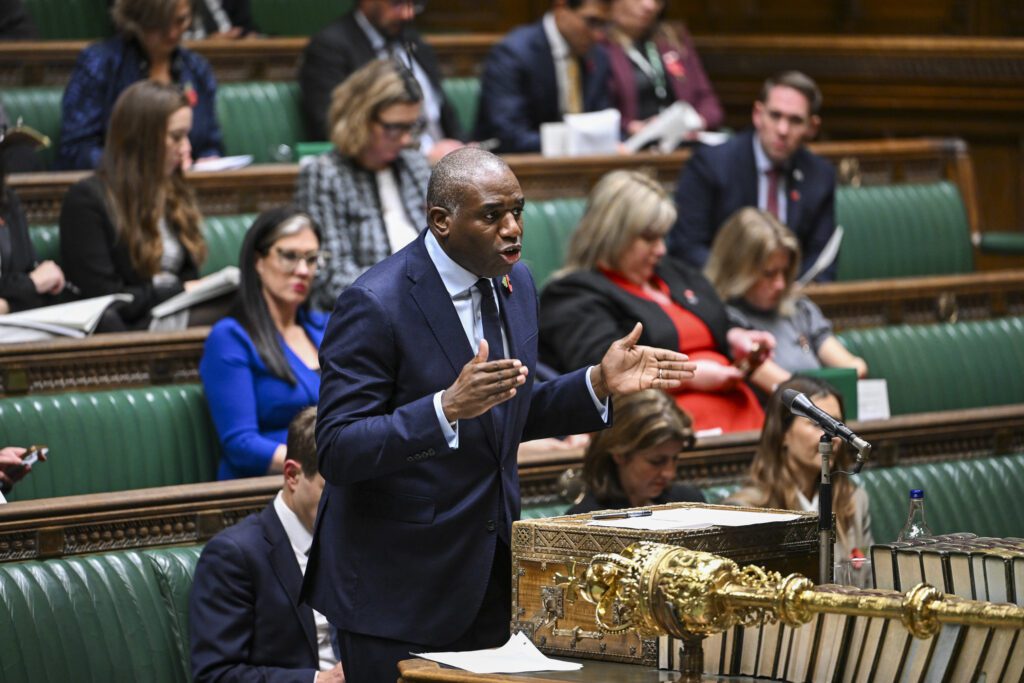After months of heavy criticism, the Labour government has finally decided to set out plans to tackle migrationwithin the UK and prevent exploitation of the settlement system.
Last week Starmer’s government set out proposals that would significantly extend the time the majority of legal migrants must spend in the UK before they can settle permanently, in an attempt to deter migrants with little potential to contribute to the British economy.
What are the proposed changes?
Currently, the qualifying period for Indefinite Leave to Remain is five years, however, Home Secretary Shabana Mahmood’s changes will increase this period to ten years for most applicants. Indefinite Leave to Remain allows a person to remain in the UK permanently, work without restrictions and access services. It is also one of the main routes to citizenship. For those already legally gained citizenship, Mahmood has clarified that the change would apply to people who arrived after 2021, meaning those who already hold settled status will not be forced to reapply.
Under the new proposals, the route will become slower and more conditional, as legal migrants who have claimed benefits for less than a year will be required to wait fifteen years before they can settle, and those who have claimed benefits for more than a year would be required to wait twenty years. This will be the longest waiting period of its kind in Europe. Health and social care workers who entered the UK on post Brexit routes under the so-called ‘Boriswave’ will also face a fifteen year requirement; the current qualifying period for them is five years. Ministers argue that the new system is intended to create what they call earned settlement. Applicants will need to show evidence of economic contribution, community ties and good character. Requirements include earning above £12,570 for three years, A-Level standard English and a clean criminal record.

Exemptions
A small number of groups would see their route shortened rather than lengthened, supposedly to stimulate economic growth. Migrants earning £125,140 a year for three years would be allowed to settle after three years, as migrants with greater economic potential. Those earning £50,270 would have a five year route. Proficiency in English, time spent volunteering and other markers of contribution could also shorten the overall waiting period. Whether this is truly beneficial for the British economy is questionable, for instead of attempting to increase the number of British talent to aid economic growth, foreign talent is once again being relied upon, a somewhat reckless move that threatens to drive out high-earning British citizens.
Existing fast track routes for victims of domestic abuse, bereaved partners and resettled refugees would remain, preventing the most vulnerable applicants from danger or exploitation. However, family members would no longer receive settlement automatically through the main applicant, but children who entered the UK under eighteen could settle with parents. The proposals are linked to measures already set out in a government white paper in May. The planned changes would begin in spring 2026 after the consultation period ends in February.
Under the plans, migrants seeking settlement will be required to hold a clean criminal record, to rectify concerns about migrants aggravating the justice system further. Indeed, it is hard to deny that increased migration has lead to increased crime, for a small minority of migrants come to the UK to escape criminal persecution and then later reoffend in Britain, straining prison resources further. Certain groups will retain reduced settlement periods, including immediate family members of UK citizens and Hong Kong BN(O)s, who will maintain the five-year route, as well as skilled frontline public service workers.
Migrants on Global Talent or Innovator Founder visas for at least three years could qualify after only three years, a reduction of seven years from the standard baseline. Those making national insurance contributions would settle after ten years, while higher and additional-rate taxpayers would receive shorter waiting periods in line with their level of contribution.
Labour’s shifting policy on migration
In line with Labour’s current attempts to appeal to the right, Home Secretary Shabana Mahmood’s rhetoric surrounding these changes bordered upon nationalist sentiment, asserting that settlement should be understood as a privilege that must be earned. Arguably, this ideological shift is far too little, too late, for Mahmood’s rhetoric fails to understand that Reform-aligned voters have no faith in the Labour government to actually carry out these changes, considering how previous attempts by Starmer’s government to tackle both legal and illegal migration have failed.
Figures from the Home Office indicate that net migration added around 2.6 million people to the UK population between 2021 and 2024, and around 1.6 million people are forecast to settle between 2026 and 2030. The Home Office have attempted to justify the starkly divergent projection by claiming previous Conservative administrations were too lenient on migrants as a result of desperately needing healthcare workers after the pandemic, although whether Mahmood’s projections are actually feasible is rather dubious. After all, Sunak, Truss and their controversial Home Secretary Braverman had rhetoric reminiscent of Mahmood on this matter, and yet nothing was ever done.
Reactions
As predicted, the proposal drew a controversial response in the Commons, as the Conservative Shadow Home Secretary Chris Philp accused Labour of reproducing ideas his party had already developed, however asserted that his party would support the changes, despite believing that they risked creating inconsistencies unless a migration cap was added. Reform UK did not respond in Parliament. The party has previously said that it would abolish ILR entirely and replace it with repeated visa renewals.
Earlier in the week, Farage mocked Mahmood for her right-wing stance upon changes to the asylum system, suggesting that she was auditioning to join Reform. Clearly, Mahmood is attempting to mimic the success of Farage’s anti-immigration stance with the electorate, although Labour now risks alienating left-wing voters, especially considering her migration proposals do favour the wealthy. Then again, to take a left-wing stance on migration would be misguided, for in Europe, trends have emerged that the further right the government leans, the more success they have regarding migration and the economic issues amplified by over-migration.
Outside of Parliament, trades unions such as Unison strongly criticised the plan, asserting that the changes would harm essential public services by leaving key workers in a long period of uncertainty. Christina McAnea, the union’s general secretary, argued that many of the workers affected had supported the UK during the pandemic and that the proposals undermined commitments made to them at the time. She warned that sectors such as care work and school support work remain dependent on overseas staff. Although McAnea may be correct that these sectors depend on overseas workers, surely the answer is not to increase migration, but to train British citizens, desperately in need of work, to be able to pursue jobs in those sectors, alleviating pressure on both the benefits system and essential sectors.
Final thoughts
Mahmood has unfortunately not expressed any plans to help British workers gain essential skills to sustain sectors such as healthcare and education however, thus revealing key flaws to her strategy to revitalise Britain. It is clear Mahmood simply wishes to emulate competence, instead of truly pursuing it, much like the majority of her colleagues in government.
Whether these reforms will be successful for Britain is now left to be seen. Perhaps this new right-wing direction the government seems to be taking on migration will lead to economic growth and help restore national faith in their administration, but that is doubtful. After all, migration is only so devastating currently because of systemic failures in healthcare, the justice system, or the education system, none of which Mahmood has expressed any interest in fixing. Until the government can prove itself capable of governing for the British people, policies like this are simply a facade of patriotism.
Featured image via Home Office / Flickr.


